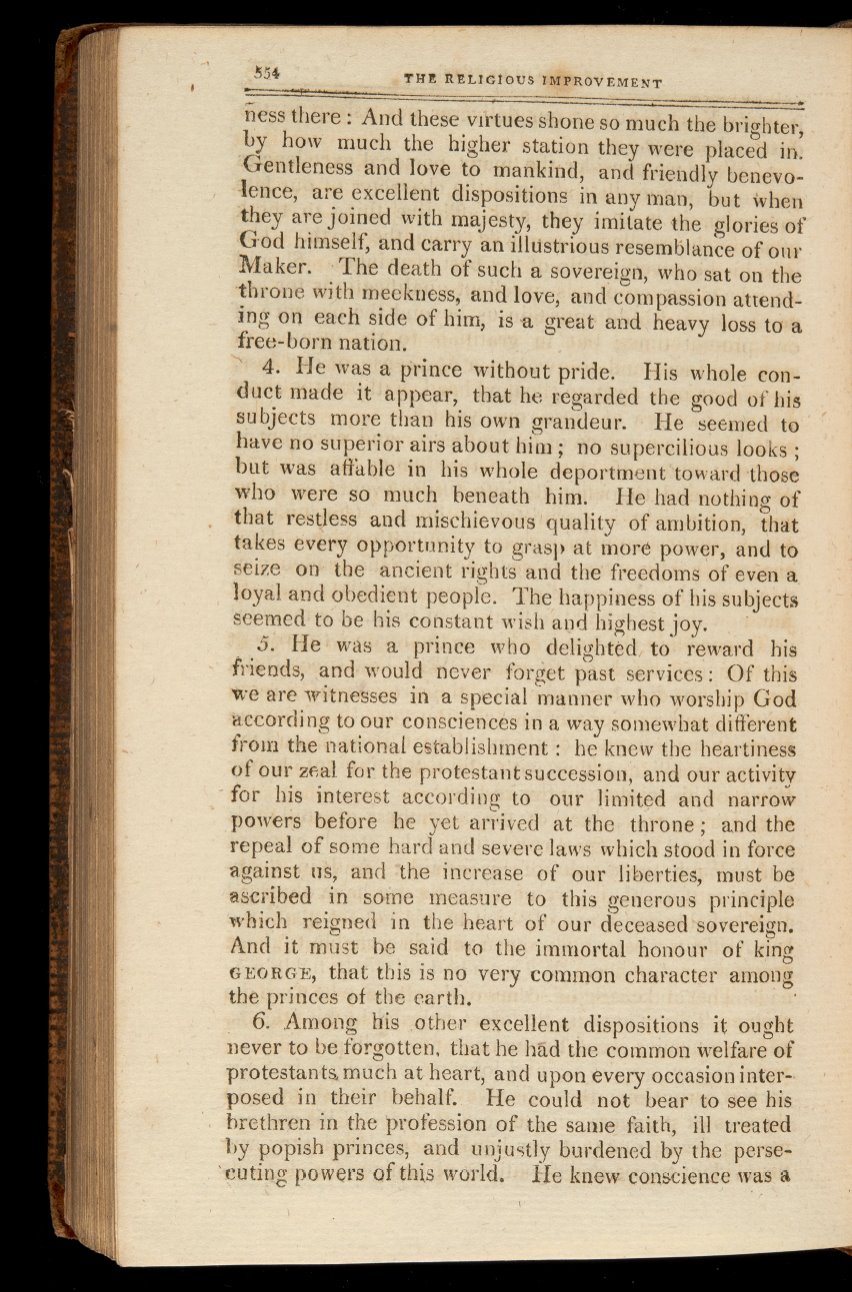

X54
THE RELIGIOUS IMPROVEMENT
ñess
there
:
And these
virtues
shone
so
much the brighter,
by
how
much the higher
station
they were placed
in.
Gentleness
and
love
to
mankind, and friendly benevo-
lence,
are excellent dispositions
in
any
man,
but
when
they are joined with
majesty, they
imitate the
glories
of
God
himself,
and carry
an illustrious resemblance
of our
Maker. The death of
such a sovereign,
who
sat
on
the
throne
with meekness,
and
love,
and compassion
attend-
ing on each
side
of
him,
is
as
great
and
heavy
loss
to a
free-born nation.
4.
He
was
a
prince
without
pride. His
whole
con
-
duct
made
it appear, that
he
regarded
the
good
of
his
subjects more than
his own
grandeur. He
seemed to
have
no
superior
airs
about
him
;
no
supercilious
looks
;
but
was affable in his
whole
deportment
toward those
who were
so
much
beneath
him.
Ile
had nothing
of
that
restless
and
mischievous
quality of
ambition,
that
takes
every
opportunity
to
grasp
at
more
power, and to
seize on the
ancient
rights and the freedoms of
even
a
loyal and obedient people. The happiness
of
his
subjects
seemed t6
be his
constant
wish
and
highest
joy.
5.
He
was
a prince
who
delighted; to reward
his
friends, and would never
forget past
services
:
Of
this
we
are witnesses
in
a
special
manner
who worship
God
according
to
our
consciences
in
a
way
somewhat different
from the
national establishment
:
he
knew
the heartiness
of
our
zeal for the
protestant
succession, and our
activity
for
bis
interest according
to
our
limited and narrow
powers before
he
yet
arrived
at
the
throne
;
and
the
repeal
of
some
hard
and severe
laws which stood
in
force
against
us,
and
the
increase
of
our
liberties, must
be
ascribed
in some
measure
to this generous principle
which
reigned
in the
heart of our
deceased
'sovereign.
And
it
must
he
said to the immortal honour of
king
GEORGE,
that
this
is
no
very common
character
among
the princes
of
the
earth.
6.
Among
his
.other excellent dispositions it ought
never to
be
forgotten,
that
he had
the common
welfare
of
protestants. much
at
heart,
and upon every occasion
inter-
posed
in
their
behalf.
He
could
not
bear
to
see his
brethren
in the
profession
of
the same
faith,
ill
treated
by popish princes, and unjustly burdened
by
the perse-
'cuting
powers
of
this world.
He
knew conscience
was
a

















